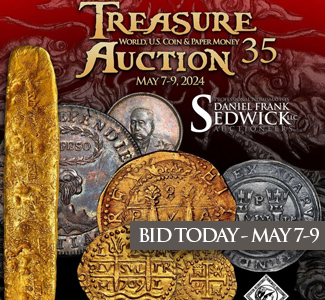By Commodity Futures Trading Commission (CFTC) ……
The Commodity Futures Trading Commission (CFTC) advises the public not to take cash from their retirement plans under relaxed distribution rules provided in the Coronavirus Aid, Relief, and Economic Security Act (CARES Act) to speculate or invest in gold, silver, or other precious metals without first consulting licensed or registered financial, tax, or legal advisors.
Since the CARES Act was enacted in March in response to the COVID-19 (coronavirus) pandemic, the CFTC has observed a growing trend of precious metals promoters and dealers encouraging investors to use the CARES Act distribution rules to convert their retirement savings into investments of gold or silver coins, self-directed gold individual retirement accounts (IRAs), or make leveraged purchases of physical metals.
What to Consider
Investing in precious metals as part of a diversified portfolio—along with stocks and bonds—may be a wise decision.
However, even if they call themselves “IRA experts”, precious metals dealers oftentimes are not licensed or registered to provide investment or trading advice to retail customers.
They are typically salespeople who are paid commissions based on the products they sell. Unlike financial professionals who have a fiduciary responsibility to you, these dealers are not obliged to have your best interests in mind.
As a result, commissions and profits often drive their recommendations. This includes recommendations for IRAs or leveraged purchases that come with expensive monthly fees for administration, handling, storage, or insurance; purchasing collectible coins with high markups and low liquidity; and tapping retirement savings, which is where many Americans hold the bulk of their investment assets.
Bullion, Coins, and IRAs
Physical metals fall into two categories:
- Bullion, which are coins or bars of a specific weight and purity; and
- “Numismatic” or collectible coins, which can be rare or old coins or special Proofs that are newly minted as collectibles.
Bullion prices are based on the spot market price plus a markup or “premium” of between 5 percent and 10 percent. However, customers are often encouraged to purchase numismatic coins with premiums that can range from 40 percent to 200 percent above the spot price. Buyers are told the coins will only go up in value because of their rare or collectible nature.
But numismatic coins can be difficult to objectively value and the market for Proofs and rare coins is not very liquid. Customers who need to sell their collectible coins are often forced to return to the dealers, who buy the coins back at a fraction of the original sales price.
Only certain bullion coins can be kept in an IRA. But some dealers will boost their profits by charging hidden one-time or monthly fees.
In some cases, customers have reported losing half of their investment to fees.
Leveraged Accounts
In other cases, a dealer might call a customer and report that she ran into the company’s lead trader who gave her a tip that the metal is about to take off in value. If the customer can put down 20 percent to 25 percent of the cost, the company will finance the rest of this “once in a lifetime opportunity.”
However, unless the company is registered as an exchange with the CFTC, or actually delivers the metal within 28 days, this sort of leveraged transaction is a violation of the Commodity Exchange Act and may be a fraud.
Commonly, these leveraged transactions include high-interest charges and a form of speculation that could cause customers to lose everything.
Metal prices can be volatile on a day-to-day basis and if the value of the purchased metal falls, the customers’ equity falls with it. If the account falls below a certain level, the customers could be required to pay a margin call, or if the balance falls below a specific minimum, the account could be closed and the customers would lose all of their funds. Past investigations of similar schemes revealed no physical metal was ever purchased on behalf of customers, but they were charged interest, margin, storage, and insurance charges.
Compare Premiums and Fees
Never buy precious metals based on a cold call, unsolicited email, social media post, or infomercial.
Compare costs and insist on getting all fees in writing.
Share the information with qualified advisors and ask for their input. When shopping for a precious metals dealer, start by knowing the daily spot price of the metal and comparing premiums. Spot prices are quoted in troy ounces or about 31.1 grams. First, convert the spot price to the equivalent weight of the coins you are comparing, then use this formula:
If you have a tip or believe you have been a victim of fraud, visit cftc.gov/complaint.
* * * * * *
CFTC’s Precious Metals Customer Fraud Advisory
The CFTC has issued several customer protection Fraud Advisories that provide the warning signs of fraud, including the Precious Metals Fraud Advisory, which alerts customers to precious metals fraud and lists simple ways to spot precious metals scams.
Customers can report suspicious activities or information, such as possible violations of commodity trading laws, to the CFTC Division of Enforcement via a Toll-Free Hotline 866-FON-CFTC (866-366-2382) or file a tip or complaint online.
